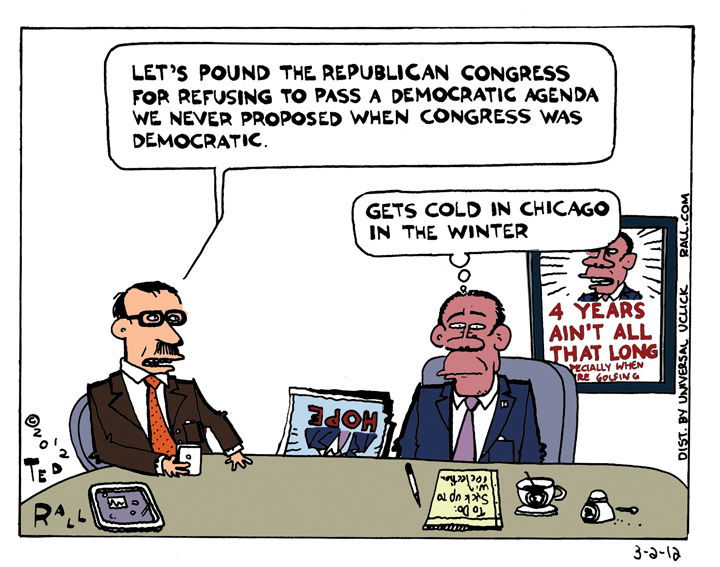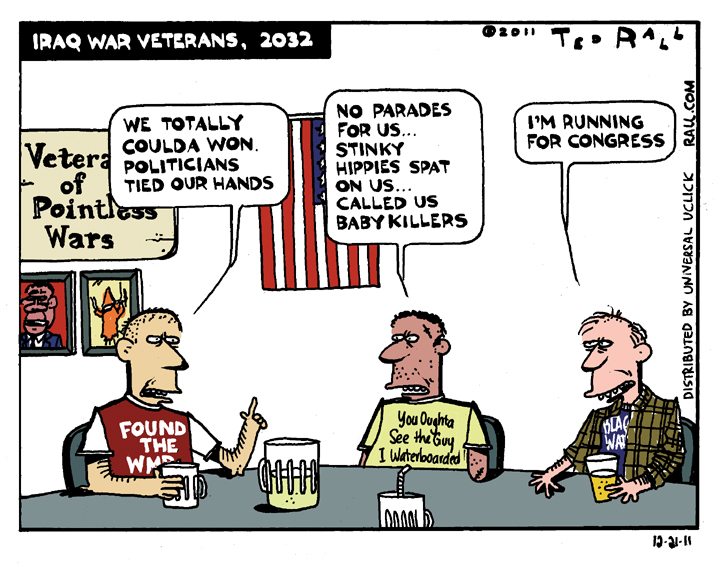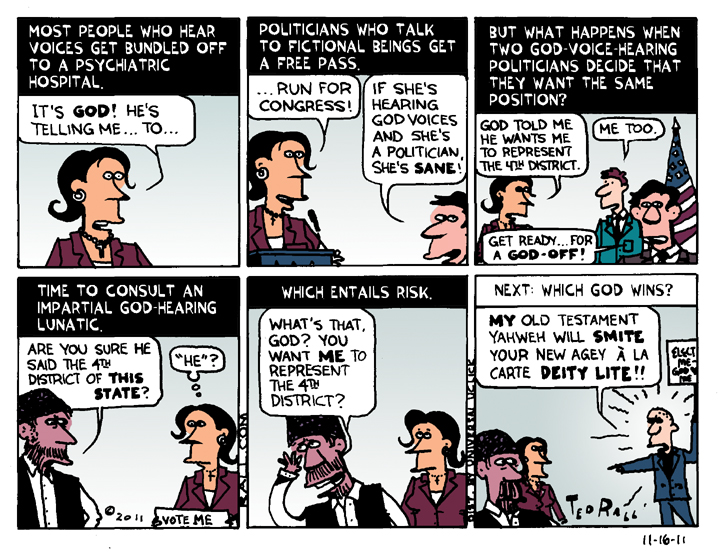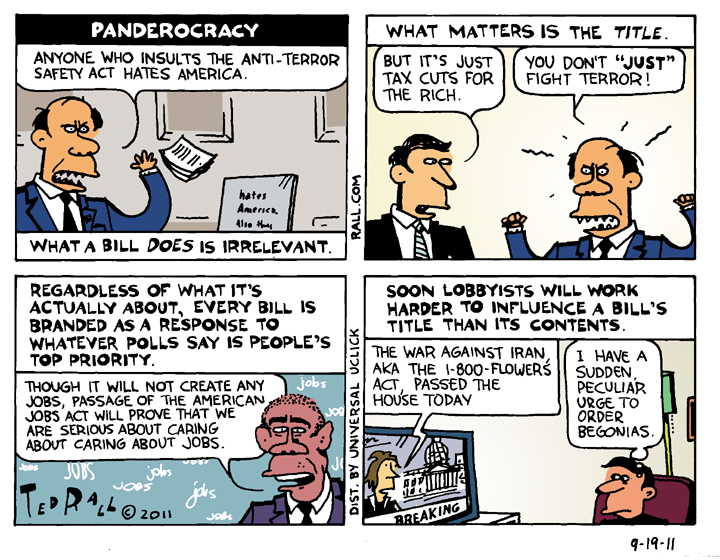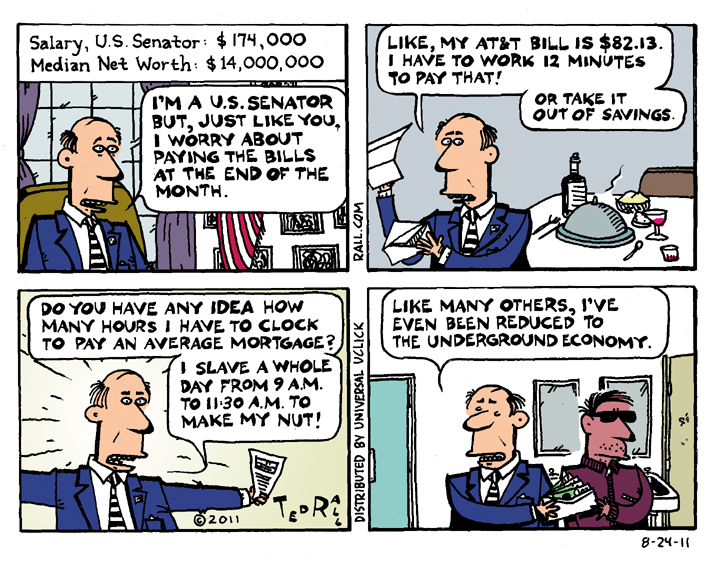Is Obama Kowtowing to the Right? Or Is He One of Them?
The President’s progressive critics blame him for continuing and expanding upon his Republican predecessor’s policies. His supporters point to the obstructionist, Republican-controlled Congress. What can Obama do? He’s being stymied at every turn.
The first problem with the it’s-the-GOP’s-fault defense is that it asks voters to suffer short-term memory loss. In 2009, you probably recall, Democrats controlled both houses of Congress. By a sizeable majority. They even had a filibuster-proof 60-seat majority in the Senate. His approval ratings were through the roof; even many Republicans who had voted against him took a liking to him. The media, in his pocket, wondered aloud whether the Republican Party could ever recover. “Rarely, if ever, has a President entered office with so much political wind at his back,” Tim Carney wrote for the Evans-Novak Political Report shortly after the inauguration.
If Obama had wanted to pursue a progressive agenda—banning foreclosures, jailing bankers, closing Guantánamo, stopping the wars, pushing for the public option he promised in his healthcare plan—he could have. He had ample political capital, yet chose not to spend it.
Now that Congress is controlled by a Republican Party in thrall to its radical-right Tea Party faction, it is indeed true that Obama can’t get routine judicial appointments approved, much less navigate the passage of legislation. Oh-so-conveniently, Obama has turned into a liberal-come-lately. Where was his proposed Buffett Rule (which would require millionaires with huge investment income to pay the same percentage rate as middle-class families) in 2009, when it might have stood a chance of passage?
Team Obama’s attempt to shore up his liberal base also falls short on the facts. Progressives were shocked by the U.S. Supreme Court’s 5-4 ruling, along party lines, that legalized strip-searches and body cavity rapes by police and private security firms who detain people suspected of any crime, even minor traffic infractions.
“What virtually none of this…commentary mentioned,” reported Glenn Greenwald in Salon, “was that that the Obama DOJ [Department of Justice] formally urged Court to reach the conclusion it reached…this is yet another case, in a long line, where the Obama administration was able to have its preferred policies judicially endorsed by getting right-wing judges to embrace them.”
No wonder Obama stayed mum.
Which brings us to the biggest, yet least discussed, flaw in the attempt to pin Obama’s inaction on the heads of Congressional Republicans: the bully pulpit.
Whether Donald Trump likes it or not, Barack Obama is still president. If he calls a press conference to call attention to an issue, odds are that reporters will show up. But he’s not walking tall or even talking big.
Responding to fall 2011 polls that indicated softening support among the younger and more liberal voters who form the Democratic base, Obama’s reelection strategists began rolling out speeches inflected with Occupy-inspired rhetoric about class warfare and trying to make sure all Americans “get a fair shot.” But that’s all it is: talk. And small talk at that.
Instead of introducing major legislation, the White House plans to spend 2012 issuing presidential orders about symbolic, minor issues.
Repeating Clinton-era triangulation and micro-mini issues doesn’t look like a smart reelection strategy. The Associated Press reported: “Obama’s election year retreat from legislative fights means this term will end without significant progress on two of his 2008 campaign promises: comprehensive immigration reform and closing the military prison for terrorist suspects at Guantánamo Bay, Cuba. Piecemeal presidential directives are unlikely to make a sizeable dent in the nation’s 8.6 percent unemployment rate or lead to significant improvements in the economy, the top concern for many voters and the issue on which Republican candidates are most likely to criticize Obama. In focusing on small-bore executive actions rather than ambitious legislation, the president risks appearing to be putting election-year strategy ahead of economic action at a time when millions of Americans are still out of work.”
Of course, Obama may prevail. Romney is an extraordinarily weak opponent.
For progressives and leftists, however, the main point is that Obama never tries to move the mainstream of ideological discourse to the left.
Obama has been mostly silent on the biggest issue of our time, income inequality and the rapid growth of the American underclass. He hasn’t said much about the environment or climate change, the most serious problem we face—and one for which the U.S. bears a disproportionate share of the blame. Even on issues where he was blocked by Congress, such as when Republicans prohibited the use of public funds to transport Gitmo detainees to the U.S. for trials, he zipped his lips.
It isn’t hard to imagine a president launching media-friendly crusades against poverty or global warming. FDR and LBJ did it, touring the country, appointing high-profile commissions and inviting prominent guests to the White House to draw attention to issues they cared about.
In 2010, Venezuelan President Hugo Chávez invited flood victims to move into his presidential palace. Seven years after Katrina, Gulf Coast residents are still waiting for help. What if Obama opened up the Lincoln Bedroom to a homeless family? The media couldn’t ignore a PR stunt like that.
Obama has mostly shunned the time-honored strategy of trapping your opposition by forcing them vote against your popular ideas. In 2009, for example, it would have been smarter politics—and better governance—to push for real socialized medicine, or at least ObamaCare with the public option he promised. He would either have wound up with a dazzling triumph, or a glorious defeat.
Liberals don’t blame Obama for not winning. They blame him for not trying. When he does crazy things like authorizing the assassinations of U.S. citizens without trial, progressives have to ask themselves: Is this guy kowtowing to the Right? Or is he one of them?
(Ted Rall’s next book is “The Book of Obama: How We Went From Hope and Change to the Age of Revolt,” out May 22. His website is tedrall.com.)

